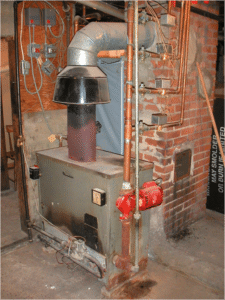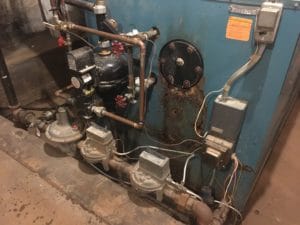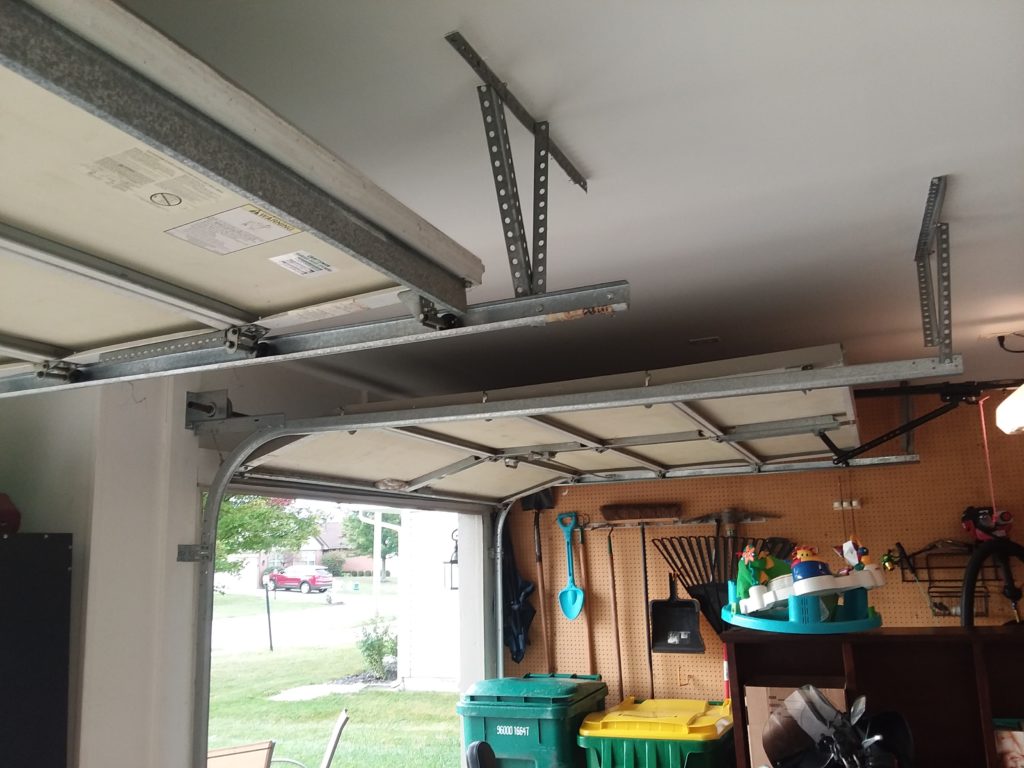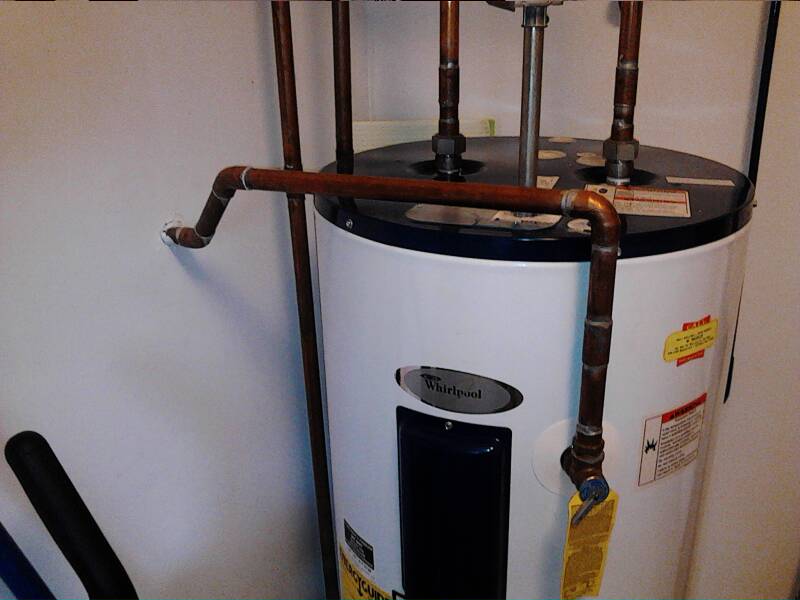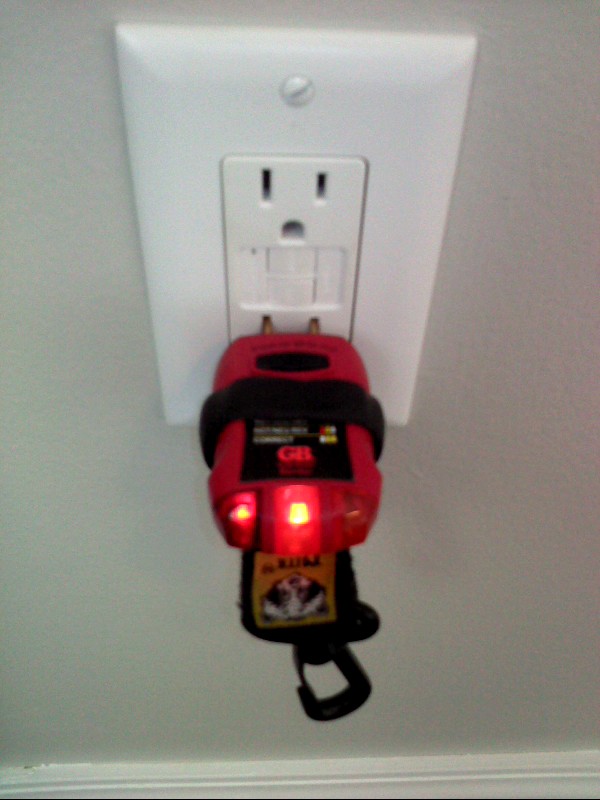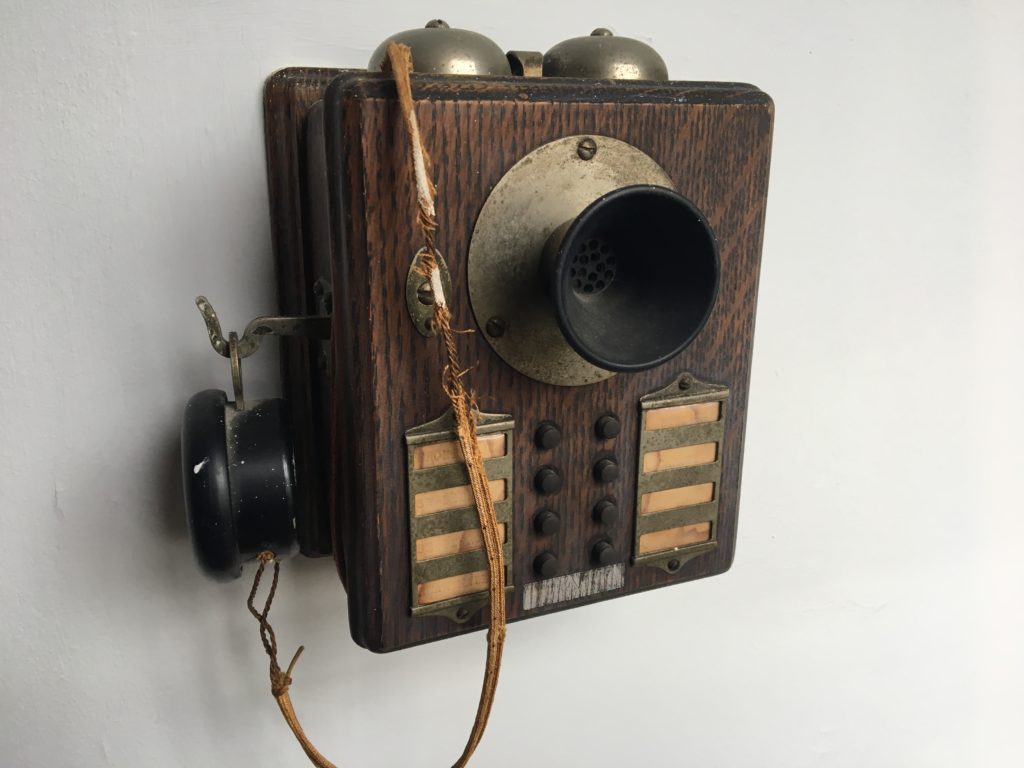Many older homes and some new ones have boilers supplying heat using radiators or under floor piping. The boilers usually operate on fuel oil or gas. There are a few electric boilers still in operation. It does not matter which system the house has, they all operate using the same basic principals.
Types of Boiler Systems
There are two types of boiler systems.
Closed Systems
The closed type where the water is heated in the boiler and circulated through out the system using a circulation pump, to allow for the waters natural expansion as it heats the system is fitted with an expansion tank. If additional water is needed in the system an automatic filling valve adds the water. This is the most common system found.
Open or Un-Pressurized Systems
The open or un-pressurized system, found in very old houses, uses a header tank in the attic to allow the expanding water to vent from the system and also to add water to the system as the water level falls in the system. The water in the heating system is separate from the drinking water plumbing in the house. Very little water is added to the system over the course of the heating season.
Difference between Hot Water and Forced Air
A gas furnace and gas boiler, or oil furnace and oil boiler will need the same annual maintenance. Additionally the boiler system should have the expansion tank emptied annually if it is not the newer pressurized type with a bladder. Monthly, the radiators or under floor circuits should be bled for air build up.
A forced air system has a blower to move the air, the boiler uses a pump to move the water through the pipes.
Boiler water pressure should be checked during the heating season, normal pressure for a water system should be in the 12 to 15 lbs operating range when hot, If the system is steam the pressure should be 0 lbs, pressures outside these parameters should be checked immediately.
Bleeding air from the system In houses with hot water heating, air gets trapped in the top of the radiators making them feel cold and reducing their ability to heat. This air must be removed or bled. On the top end of the upright type radiator there is a bleeder valve that accepts a radiator key, with a cup under the protruding nozzle open the key one or two turns. A hiss of air will be followed by a stream of water. Close the valve.
Similarly behind the access cover on one end of a baseboard radiator there is a screw that operates the bleeder valve. Systems that have under floor heating use a distribution pipe with all the bleeder valves beside each other along with flow regulating valves for each circuit, these valves can be adjusted to increase or decrease the heat in each room or zone. Automatic bleeders are available.
Circulation Pumps
It is suggested that the circulation pump when installed should be wired in a manner that allows the user to switch it on for constant water circulation. Normal wiring practices have the pump cycling on and off with the boiler. The constant flow maintains a more uniform temperature and takes the start up load off the boiler.
Steam systems do not have circulation pumps or bleeding valves.
Recommendation: Adding a water conditioner (chemical additive) to the water in the enclosed water system to reduce the damage to the pipes and pump caused by the minerals in the water.
